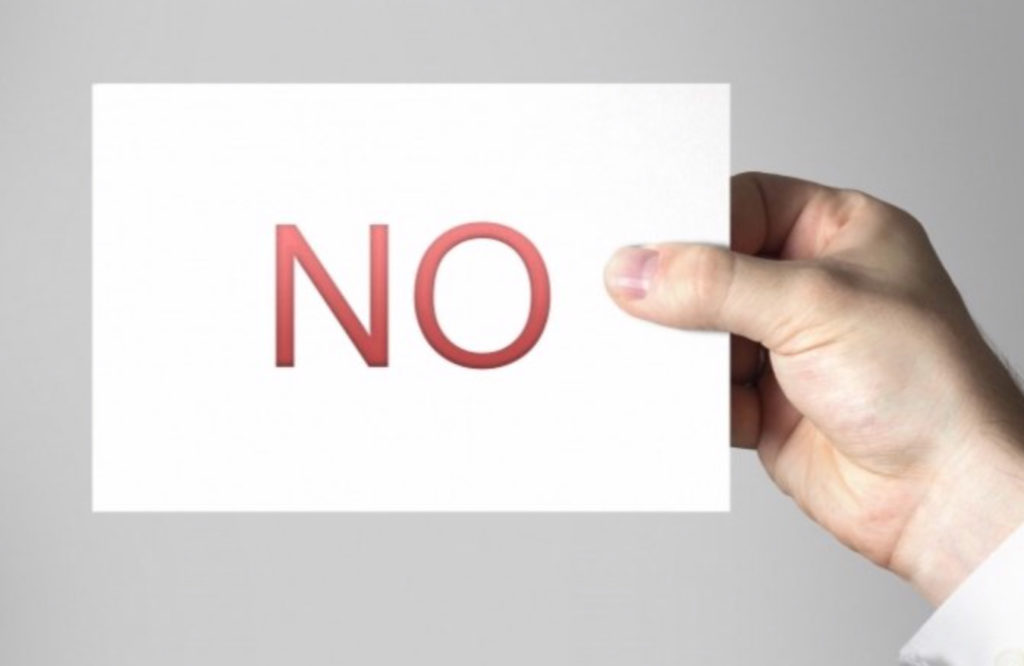How to say “no” and why sometimes you really should

I was supposed to be going out with a dear friend today. I was looking forward to it so a few weeks ago, I made sure childcare was sorted. I got dressed in a nice outfit I wouldn’t wear for work and put on makeup my friend wouldn’t care about but that made me feel celebratory. As I made to leave home, I picked up my phone. There was a message. “Can we re-schedule? Sorry.” I replied “Okay” and quietly fumed. Before you think ill of my friend, the problem is not what you might think. My friend is not a selfish person. In fact, it is quite the opposite. My friend is a yes-person. She says yes to the big project at work, yes to a coffee she doesn’t have time for with a work-mate, yes to making 100 cupcakes for the school fete, yes to catching up with me. At some point, all of these yeses converge in a tsunami of overlapping commitments.
At a specific moment in time, there is a forced choice for priority RIGHT NOW. Today, there was a mismatch to the priority level my friend and I each assigned to this event. For me, the catch-up was a high priority. For my friend, when it came to crunch time, it wasn’t. Or perhaps more accurately, it couldn’t be. I don’t mean I am a low priority to my friend. What I mean to say is that the way we manage time sends a message about what we value. You may find yourself so caught up saying yes to the small things, or the work things, that you don’t have time for the things which are truly important to you.
In an ideal world, the amount of time we spend on projects and people should reflect the value they represent to us. If you say yes to everything, this is VERY difficult to achieve. You may find one or more parts of your life suffering. And the more you say yes to, the more likely you’ll find yourself gleaning back hours from your family and closest friends who will love you regardless.
Whilst saying no can be really uncomfortable, saying a thoughtful no is likely to inspire genuine respect for your commitment to your core values and goals. It is certainly much better than a half-hearted completion or a last minute cancellation.
What types of things should you say no to?
Consider saying no to anything which doesn’t align with your core values and current goals. Ask yourself “Does this opportunity take me where I want to go now in my career/life. Is this really important to me?” If the answer is yes, jump in with two feet and make the opportunity a priority. If the answer is no/ kinda/maybe not, then politely decline. By saying no, you leave space and time to say yes to the opportunities and people that really matter to you.
How do you give a thoughtful no?
1) Don’t answer immediately:
- If you are unsure whether you really want to say yes, or you know you don’t want to say yes but don’t know how, give yourself time. Try something like: “I’m not sure if I can commit to that right now. When do you need a response by ?” or “Hmmm. I’m not sure. I’ll get back to you”.
- If you say you will get back to someone, do it. Saying yes is easy, but if you are going to say no, make sure you reply in a reasonable time. The other person might be eagerly awaiting your response. If you’ve decided to say no, letting the person or group know allows them to move on to other possible people. This is especially true of work opportunities. For example, when you’re answering an invitation to be a guest speaker at an interest group, if it doesn’t align with your goals or values, carefully craft your response and say no.
2) How to say no:
- Thank the person for the opportunity. “Thanks so much for thinking of me and asking me to do XX.”
- Explain a little about why it doesn’t work for you at the moment. “There is a lot going on in my world right now and I need to focus on what is important.”
- Say no. “So I am going to have to say no.”
- Wish them well. “I hope you have a great XX.”
3) Is it a ‘hard-no’ or ‘never’? Or is it a ‘not now, but I would be open to opportunities in future’? Depending on which kind of no you intend to give, make sure your response reflects this.
- If it is a hard-no, nicely close the door and leave it shut. “Thanks for thinking of me for this opportunity. I have too many things on at present and am in danger of not doing any of them well. For that reason, I have to say no. Best of luck.”
- If it’s a soft-no, you can add: “Once I finish the big XY, I would love to catch up with you next month/next year/next time.”
If you’re a yes-person like my friend, choosing to be a no-person now and again can be hard. Try to remember that in the long-run, opting out of invitations or opportunities that aren’t quite right for you at that particular time, is probably the best way forward. You’ll inevitably do a better job at whatever else is taking up your time, and most likely be better respected by those family, friends or colleagues who you may have had to let down with a late cancellation or rain-check.
 Rehab Connection
Rehab Connection 